Las posibilidades descolonizadoras de las narrativas en la formación inicial del profesorado
Resumen
Palabras clave
Texto completo:
PDFReferencias
AUSTIN, J.L. (1975). How to do things with words. Oxford: Oxford University Press.
BARAHONA, M. (2016). English language teacher education in Chile: A cultural historical activity theory. New York: Routledge.
BARBONI, S. & PORTO, M. (2013). Introduction. In S. BARBONI, & M. PORTO (eds.), Language education from a South American Perspective. What does Latin America have to say? (pp. 9-22). La Plata, Argentina: Dirección General de Cultura y Educación. Provincia de Buenos Aires.
BARKHUIZEN, G. (2011). Narrative knowledging in TESOL. TESOL quarterly, 45(3), 391-414.
BUTLER, J. (2000). Critically queer. GLQ, 1, 17-32.
CAINE, V. & STEEVES, P. (2009). Imagining and playfulness in narrative inquiry. International journal of education and the arts, 10(25), 1-14.
CASTRO-GÓMEZ, S. (2007). Decolonizar la universidad. La hybris del punto cero y el diálogo de saberes. En S. CASTRO-GÓMEZ, & R. GROSFOGUEL, (eds.), El giro decolonial: Reflexiones para una diversidad epistémica más allá del capitalismo global (pp. 79-91). Bogotá: Siglo del Hombre Editores.
CASTRO-GÓMEZ, S. & GROSFOGUEL, R. (2007). Prólogo. Giro decolonial, teoría crítica y pensamiento heterárquico. En S. CASTRO-GÓMEZ, & R. GROSFOGUEL, (eds.), El giro decolonial: Reflexiones para una diversidad epistémica más allá del capitalismo global (pp. 9-23). Bogotá: Siglo del Hombre Editores.
CLANDININ, D.J., CAVE, M.T., & CAVE, A. (2011). Narrative reflective practice in medical education for residents: composing shifting identities. Advances in medical education and practice, 2, 1-7.
CLANDININ, D.J. & CAINE, V. (2013). Narrative inquiry. In A.A. TRAINOR & E. GRAUE (eds.), Reviewing qualitative research in the social sciences (pp. 166-179). New York: Routledge.
CLANDININ, D.J., DOWNEY, C.A., & HUBER, J. (2009). Attending to changing landscapes: Shaping the interwoven identities of teachers and teacher educators. Asia-Pacific journal of teacher education, 37(2), 141-154.
CLANDININ, D.J., PUSHOR, D., & ORR, A.M. (2007). Navigating sites for narrative inquiry. Journal of teacher education, 58(1), 21-35.
CLANDININ, D.J., STEEVES, P., & CHUNG, S. (2008). Creando espacios de investigación narrativa en la formación del profesorado. En L. PORTA & M.C. SARASA (comps.), Formación y desarrollo de la profesión docente en el profesorado: Las buenas prácticas y sus narrativas (pp. 59-83). Mar del Plata: Universidad Nacional de Mar del Plata.
CONNELLY, F.M. & CLANDININ, D.J. (1990). Stories of experience and narrative inquiry. Educational researcher, 19(5), 2-14.
CONNELLY, F.M & CLANDININ, D.J. (1994). Telling teaching stories. Teacher education quarterly, 21(1), 145-158.
CONNELLY, F.M. & CLANDININ, D.J. (2006). Narrative inquiry. In J.L. GREEN, G. CAMILLI, & P.B. ELMORE (eds.), Handbook of complementary methods in education research (pp. 477-487). Mahwah, NJ: Lawrence Erlbaum.
CONSEJO FEDERAL DE EDUCACIÓN. (2012a). Núcleos de Aprendizajes Prioritarios. Lenguas Extranjeras. Educación Primaria y Secundaria. Disponible en http://www.me.gov.ar/consejo/resoluciones/res12/181-12_01.pdf
CRESWELL, J.W. (2012). Educational research. Planning, conducting and evaluating quantitative and qualitative research. Boston: Pearson.
DE ALBA, A. (1998). Curriculum: Crisis, mito y perspectivas. Buenos Aires: Miño & Dávila.
DENZIN, N.K. (2001). The reflexive interview and a performative social science. Qualitative research, 1(1), 23-46.
DENZIN, N. & LINCOLN, I. Introducción al Volumen IV. (2015). En N. DENZIN & I. LINCOLN (comps.), Métodos de recolección y análisis de datos. Manual de investigación cualitativa. Vol. IV (pp. 43-57). Barcelona: Gedisa.
ELBAZ-LUWISCH, F. (2002). Writing as inquiry: Storying the teaching self in writing workshops. Curriculum inquiry, 32(4), 403-428.
FABIAN, J. (1983). Time and the other: How anthropology makes its object. New York: Columbia University Press.
FANON, F. (1971). Peau noire, masques blancs. Paris: Seuil.
FERRÃO CANDAU, V.M. (2013). Educación intercultural crítica. Construyendo caminos. En C.E. WALSH (ed.), Pedagogías decoloniales: prácticas insurgentes de resistir, (re) existir y (re) vivir. Tomo I. Serie Pensamiento decolonial (pp. 145-161). S.d.
FINLEY, S. (2015). Investigación con base en las artes. La realización de una pedagogía revolucionaria. En N. DENZIN & I. LINCOLN (comps.), Métodos de recolección y análisis de datos. Manual de investigación cualitativa. Vol. IV (pp. 113-139). Barcelona: Gedisa.
GADAMER, H-G. (2004). Truth and method. (J. Weinsheimer & D.G. Marshall, Trans. Eds.). London-New York: Continuum.
GRANADOS-BELTRÁN, C. (2016). Critical interculturality. A path for pre-service ELT teachers. Íkala, revista de lenguaje y cultura, 21(2), 171-187.
GROSFOGUEL, R. (2006). Decolonizing political-economy and post-colonial studies: Transmodernity, border thinking, and global coloniality. Tabula Rasa, 4, 17-48.
HUBER, J., CAINE, V., HUBER, M., & STEEVES, P. (2014). La indagación narrativa como pedagogía en la educación: el potencial extraordinario de vivir, contar, volver a contar y revivir relatos de experiencias. Revista de Educación, 7(5), 33-73.
INSTITUTO NACIONAL DE FORMACIÓN DOCENTE & SECRETARÍA DE POLÍTICAS UNIVERSITARIAS (2011). Proyecto de mejora para la formación inicial de profesores para el nivel secundario. Áreas: Geografía, Historia, Lengua y Literatura y Lenguas Extranjeras. Buenos Aires: Ministerio de Educación, Ciencia y Tecnología. Presidencia de la Nación. Recuperado de: http://portales.educacion.gov.ar/infd/files/2011/07/carreras_sociohuman%C3%ADsticas.zip
KUMARAVADIVELU, B. (2016). The decolonial option in English teaching: can the subaltern act? TESOL quarterly, 50(1), 66-85.
LÓPEZ HURTADO QUIRÓS, L.E. (2007). Trece claves para entender la interculturalidad en la educación latinoamericana. En PRATS, E. (coord.), Multiculturalismo y educación para la equidad (pp. 13-44). Barcelona: Octaedro—OEI.
LORTIE, D. (1975). Schoolteacher: a sociological study. Chicago: University of Chicago Press.
MCADAMS, D.P. (2008). The life story interview. Evanston, IL: Northwestern University.
MCADAMS, D.P. & PALS, J.L. (2006). A new Big Five: Fundamental principles for an integrative science of personality. American psychologist, 61(3), 204-217.
MALDONADO-TORRES, N. (2007). Sobre la colonialidad del ser: contribuciones al desarrollo de un concepto. En S. CASTRO-GÓMEZ, & R. GROSFOGUEL, (eds.), El giro decolonial: Reflexiones para una diversidad epistémica más allá del capitalismo global (pp. 127-167). Bogotá: Siglo del Hombre Editores.
MIGNOLO, W. (2006). Local histories/global designs: Coloniality, subaltern knowledges, and border thinking. Princeton, NJ: Princeton University Press.
MIGNOLO, W.D. (2007). El pensamiento decolonial: desprendimiento y apertura. Un manifiesto. En S. CASTRO-GÓMEZ, & R. GROSFOGUEL, (eds.), El giro decolonial: Reflexiones para una diversidad epistémica más allá del capitalismo global (pp. 25-46). Bogotá: Siglo del Hombre Editores.
NIETO CRUZ, M.C. & CÁRDENAS, M.L. (2015). Editorial. Profile Issues in Teachers’ Professional Development, 17(1), 7-9.
POPE, R. (1995). Textual intervention. London: Routledge.
QUIJANO, A. (2007). Colonialidad del poder y clasificación social. En S. CASTRO-GÓMEZ, & R. GROSFOGUEL, (eds.), El giro decolonial: Reflexiones para una diversidad epistémica más allá del capitalismo global (pp. 93-126). Bogotá: Siglo del Hombre Editores.
RESTREPO, E. & ROJAS, A. (2010). Inflexión decolonial: Fuentes, conceptos y cuestionamientos. Universidad del Cauca, Popayán, Colombia: Colecciones Políticas de la alteridad.
SPIVAK, G. (1988). Can the subaltern speak? In C. NELSON & L. GROSSBERG (eds.), Marxism and the interpretation of culture (pp. 271–313). Urbana: University of Illinois Press.
SWAIN, M. (2006). Languaging, agency and collaboration in advanced second language proficiency. In H. BYRNES (ed.), Advanced language learning: The contribution of Halliday and Vygotsky (pp. 95-108). London: Continuum.
WALSH, C.E. (2013). Introducción. Lo pedagógico y lo decolonial: Entretejiendo caminos. En C.E. WALSH (ed.), Pedagogías decoloniales: prácticas insurgentes de resistir, (re) existir y (re) vivir. Tomo I. Serie Pensamiento DECOLONIAL (PP. 23-68). S.D.
WHITE, H. (1992). El contenido de la forma. Narrativa, discurso y representación histórica. Buenos Aires: Paidós.

Este obra está bajo una licencia de Creative Commons Reconocimiento-NoComercial-CompartirIgual 4.0 Internacional.
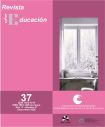 |
ISSN 1853-1318 (impresa) - ISSN 1853-1326 (en línea)
|
| Indizada en: | |
 | CCPP Catálogo Colectivo de Publicaciones Periódicas http://ccpp.caicyt.gov.ar/cgi-bin/koha/opac-detail.pl?biblionumber=149451 |
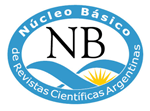 | Núcleo Básico de Revistas Científicas Argentinas, Caicyt http://www.caicyt-conicet.gov.ar/sitio/revista-de-educacion/ |
 | Google académico (en proceso de actualización) |
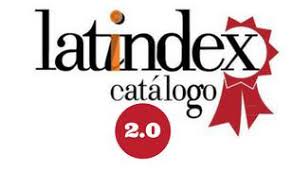 | Latindex https://www.latindex.org/latindex/ficha/14316 |
 | Redib http://redib.org/Record/oai_revista1003-revista-de-educaci%C3%B3n |
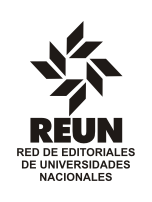 | REUN https://www.reun.com.ar/ |
 | DOAJ Link/ |
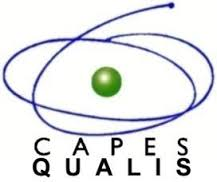 | Capes Qualis Link/ |
 | Journals for Free Link/ |
 | Latinoamericana (Asociación de Revistas Académicas de Humanidades y Ciencias Sociales) Link/ |
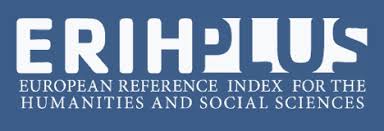 | ERIH PLUS (European Reference Index for the Humanities and Social Sciences) Link/ |
 | ROAD (Directory of Open Acces Scholarly Resources) Link/ |
 | Directory of Research Journals Indexing (DRJI) Link/ |
 | LatinRev Link/ |
| Esta revista utiliza el Identificador Persistente | |
.png) |

